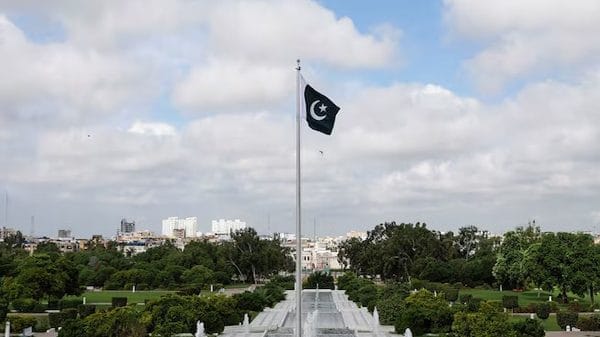New Delhi: The state of religious freedom in Pakistan is ‘increasingly dire’ and religious minorities like Hindus, Christians and Ahmadis bear the brunt of it.
A new report by the Center for the Study of Organized Hate (CSOH), a Washington DC-based think tank, documents how blasphemy allegations and mob violence continue to severely impact Pakistan’s religious minorities, particularly Christians in Punjab, who faced a surge in attacks during 2023 and 2024.
Forced conversions, especially of minority women and girls, remain a major concern, according to the report. It also highlighted growing cases of minority men being coerced into Islam under threat of violence.
The report also states that in Pakistan, women from religious minority communities have lower literacy rates than both the national average for women and the literacy rates of men within their own communities.
Among all minorities, Ahmadis are the ones who face some of the harshest persecution. Legally declared non-Muslims, they are barred from practising their faith openly, identifying as Muslim, or using Islamic symbols, making them frequent targets of blasphemy laws and violence.
According to the report, “During 2024, the Ahmadi community endured six targeted faith-based killings, while 2025 has already seen three such killings. In April 2025, an Ahmadi man was lynched by a mob of Tehreek-e-Labaik Pakistan (TLP) supporters who had gathered outside of an Ahmadiyya place of worship in Karachi and were chanting hateful and violent slogans in the lead-up to his murder.”
According to local reports, on 14 August, Independence Day celebrations in Faisalabad’s Dijkot area turned violent as a mob attacked the Ahmadi community. Two Ahmadi worship sites were vandalised, with one set on fire. Both had their minarets torn down. Fueled by hate speeches, the incident reportedly lasted nearly two hours with no police intervention. Nearby Ahmadi homes were also attacked, with several community members injured, including a youth hit in the head with a brick, The Friday Times reported.
Despite a handful of positive legal rulings, such as the annulment of a forced conversion marriage and acquittals in blasphemy cases, impunity for religious violence remains rampant. Religious extremist groups like TLP continue to incite hatred, often with support from local authorities.
No place for minorities
The report highlights how Christians, Hindus, Sikhs, Shias, Ahmadis, and Kalash (a small indigenous community residing in the Chitral District of the Khyber-Pakhtunkhwa province of Pakistan) face systemic abuse, including mob violence, blasphemy accusations, targeted killings, destruction of places of worship, forced conversions, and online harassment. Central to this persecution is Pakistan’s controversial blasphemy law, now often enforced alongside the Prevention of Electronic Crimes Act (PECA), granting authorities sweeping powers to monitor and punish speech online.
In January this year, Pakistan’s parliament passed a Bill to amend the already controversial Prevention of Electronic Crimes Act (PECA) 2016. The amendments grant the government sweeping powers to regulate social media. Penalties include up to three years in prison and a fine of up to PKR 2o lakh for spreading fake news. The Bill also prohibits sharing statements from banned organisations or their members, and broadens the definition of social media platforms to include any online information management systems.
Hindus, too, have faced escalating violence. The report states that in 2020, a temple in Karak was torched by a mob protesting its expansion. In 2019, a false blasphemy claim against Hindu teacher Notan Lal led to the looting of Hindu shops and the ransacking of a school in Sindh. Although Lal was acquitted in 2024, incidents of forced conversion and attacks on Hindu places of worship continue.
There were no reported targeted killings of the Sikh community in Pakistan during 2024 or early 2025, but this period of relative calm does not reflect safety or security. Between 2022 and 2023, a disturbing pattern of targeted violence emerged. In 2023 alone, three Sikhs were killed—Manmohan Singh was gunned down in Peshawar, Sardar Singh was shot in Lahore by motorcycle-borne assailants, and Dayal Singh, a businessman, was killed outside his shop in Peshawar. In 2022, two Sikh traders, Saljeet Singh and Ranjeet Singh, were also murdered in Peshawar.
These attacks have driven many Sikhs in Pakistan and Afghanistan into social isolation, living in fear. Justice remains elusive—most perpetrators are never caught, and in the rare cases where they are identified, they are often celebrated or pardoned. This ongoing impunity has left the Sikh community deeply vulnerable and without meaningful protection.
“The state of religious freedom in Pakistan continues to deteriorate, with religious minority groups facing widespread discrimination, persecution, and violence. Despite constitutional protections for religious freedom, the government often tolerates or enables the marginalization of religious minorities,” the report concluded.
(Edited by Theres Sudeep)






